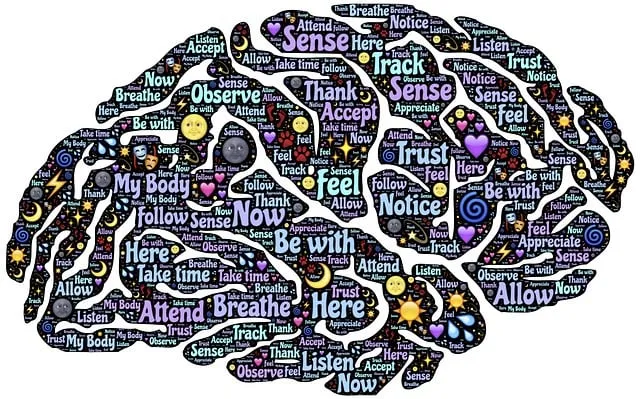Media portrayal of mental health significantly impacts public understanding, either positively by encouraging empathy and reducing stigma or negatively through perpetuating harmful stereotypes. Organizations like Kaiser, which offers mental health services in Northglenn, play a crucial role in challenging these stereotypes through accurate and diverse representations. By engaging with the community, consulting professionals, and collaborating on media initiatives, Kaiser fosters open dialogues about mental wellness, breaking down stigma and promoting emotional resilience. Diverse media narratives can complement these efforts by humanizing experiences and reducing misconceptions, ultimately enhancing mental health support within communities like Northglenn.
Mental illness representation in media significantly influences public perception and understanding. This article explores the impact of media portrayal on mental health, focusing on how organizations like Kaiser can challenge stigma. We examine cases, such as Kaiser’s initiatives in Northglenn, to promote well-being. By identifying stereotypes in popular media, we discuss strategies for accurate and empathetic representation. Additionally, we highlight the power of diverse narratives in fostering a more inclusive and informed society, including Kaiser’s role in providing mental health services in Northglenn and beyond.
- Understanding the Impact of Media Portrayal on Mental Health Perception
- Kaiser's Role in Promoting Mental Well-being: Northglenn and Beyond
- Identifying Stereotypes and Misconceptions in Popular Media
- Strategies for Accurate and Empathetic Mental Illness Representation
- The Power of Diverse Narratives in Challenging Stigma
Understanding the Impact of Media Portrayal on Mental Health Perception

Media portrayal plays a significant role in shaping public perceptions about mental health. The way mental illnesses are depicted in films, television shows, and news articles can either promote understanding or perpetuate harmful stereotypes. Positive media representation can encourage empathy, reduce stigma, and motivate individuals to seek help. Conversely, negative portrayals may lead to misinformed judgments, fear, and a reluctance to discuss mental health issues openly. This is particularly important for communities like Northglenn, where access to mental health services through organizations like Kaiser can be a game-changer.
For instance, when media showcases characters with mental illnesses as strong, capable individuals, it challenges traditional narratives and promotes the idea that recovery is possible. This representation can inspire hope and encourage viewers to view mental health struggles as manageable challenges rather than insurmountable barriers. Additionally, cultural sensitivity in mental healthcare practice, as promoted by community outreach programs, can be enhanced through responsible media coverage. By incorporating accurate, diverse, and sensitive portrayals, media has the power to foster a more inclusive environment where individuals from various backgrounds feel seen, heard, and supported in their journeys towards emotional regulation.
Kaiser's Role in Promoting Mental Well-being: Northglenn and Beyond

Kaiser plays a pivotal role in promoting mental well-being, extending its services to communities like Northglenn. Known for its comprehensive healthcare offerings, Kaiser does Kaiser offer mental health services Northglenn residents greatly benefit from. Beyond traditional medical care, the organization focuses on fostering inner strength development through specialized programs tailored to address unique community needs.
In Northglenn, Kaiser has implemented a robust Community Outreach Program aimed at enhancing access to trauma support services and promoting mental illness representation in media. By engaging with the local community, they aim to break down stigma surrounding mental health while offering practical solutions. These efforts underscore Kaiser’s commitment to not just treating illnesses but also nurturing the overall mental resilience of individuals and communities.
Identifying Stereotypes and Misconceptions in Popular Media

In popular media, mental illness is often portrayed through a lens of stereotype and misconception. From dramatic television shows to blockbuster movies, these depictions can significantly influence public perception. A common trope is the portrayal of individuals with mental health struggles as either dangerous or helpless, reinforcing outdated and harmful stereotypes. This misrepresents the vast spectrum of mental illness experiences, from manageable conditions to severe disorders, and fails to capture the resilience and diverse journeys of those seeking treatment.
For instance, media often depicts self-care practices as a mere coping mechanism for fleeting moments of calm, rather than acknowledging their role in long-term mental wellness. This superficial representation overlooks the intricate process of developing healthy habits that support mental health, which is a crucial aspect of Mental Health Policy Analysis and Advocacy. Organizations like Kaiser, with services offered in Northglenn, play a vital role in challenging these stereotypes by providing accessible mental health services and promoting open conversations about mental wellness.
Strategies for Accurate and Empathetic Mental Illness Representation

Mental illness representation in media is a powerful tool that can shape public perception and understanding. To ensure accuracy and empathy, creators should engage in careful research and consultation with mental health professionals. Incorporating real-life experiences and collaborating with individuals living with various conditions can add depth and authenticity to portrayals. This approach helps dispel stereotypes and promotes a more nuanced understanding of mental health struggles.
When depicting specific disorders, such as depression or anxiety, it’s crucial to avoid romanticizing or sensationalizing symptoms. Instead, focus on the challenges and resilience of those affected, reflecting the diverse experiences within each condition. Moreover, integrating strategies like Mindfulness Meditation and Mind Over Matter principles can offer positive representations of self-care and mood management, potentially inspiring viewers seeking similar tools for their well-being. Services like those offered by Kaiser in Northglenn play a vital role in supporting mental health, and media representation can complement these efforts by fostering open dialogue and reducing stigma.
The Power of Diverse Narratives in Challenging Stigma

Diverse narratives have a profound impact on challenging mental illness stigma, offering a powerful tool to shift societal perceptions and create a more inclusive environment. Media representation plays a pivotal role in shaping public understanding, and when stories depict individuals with mental health struggles in authentic and nuanced ways, it can break down barriers and foster empathy. By showcasing diverse characters with various mental health conditions, media can reflect the reality that mental illness is not uniform, but rather a spectrum of experiences. This approach encourages viewers to recognize the humanizing aspects of these conditions, moving away from simplistic and often harmful stereotypes.
In this regard, organizations like Kaiser, known for providing mental health services in Northglenn and beyond, can contribute by supporting and promoting diverse storytelling. They can collaborate with media outlets and artists to create content that not only raises awareness but also educates the public about effective stress management workshops and emotional healing processes. By integrating these narratives into popular culture, we can collectively work towards better emotional regulation within communities, ensuring support systems are accessible and understood by all.
Media plays a pivotal role in shaping public perceptions about mental illness. By identifying and challenging stereotypes, we can foster more accurate representations that reduce stigma. Kaiser’s initiatives in Northglenn and beyond demonstrate a commitment to promoting mental well-being through diverse narratives. Utilizing strategies for empathetic representation, media can help normalize conversations about mental health and encourage individuals to seek support without fear of judgment. In light of these efforts, it’s clear that organizations like Kaiser are making significant strides in challenging the status quo and improving mental health services accessibility.






